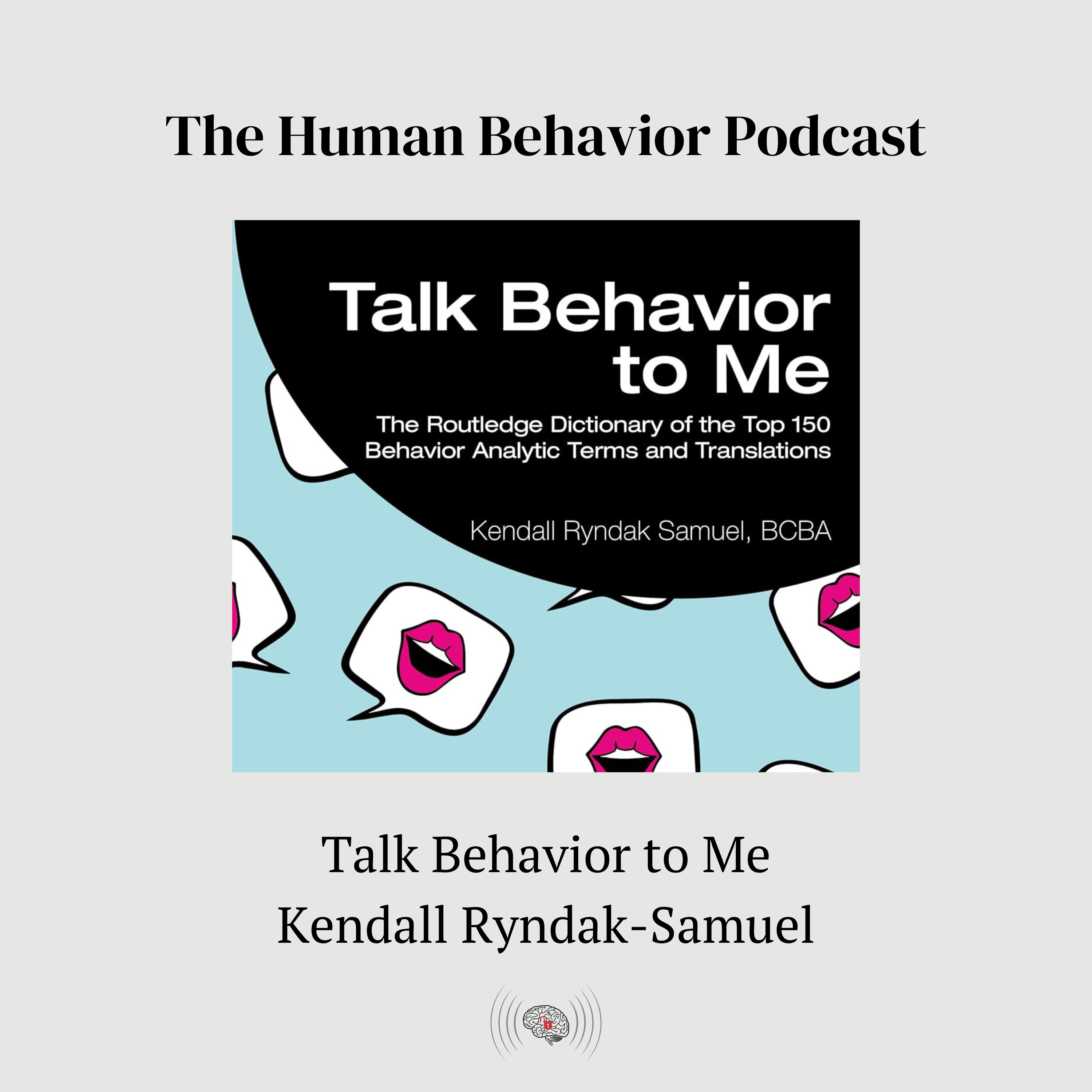Understanding human behavior is a complex endeavor, but it becomes more accessible with experts like Kendall Rindak-Samuel. In this engaging podcast episode, Kendall, a board-certified behavior analyst, sheds light on the world of Applied Behavior Analysis (ABA). With a unique blend of expertise in behavioral sports psychology and dissemination, she offers valuable insights into how ABA can revolutionize fields ranging from sports coaching to corporate environments. This episode is a must-listen for anyone interested in the profound impact of ABA on everyday life.
Kendall begins by exploring the foundational principles of ABA, emphasizing the importance of understanding and analyzing environmental factors to change behaviors. Whether it’s teaching a child to make a sandwich or implementing systems to reduce turnover in companies, the core idea is that small, strategic environmental tweaks can lead to significant behavior changes. Kendall’s unique approach in applying behavior analysis to coaching softball is particularly intriguing. By meticulously tracking progress and strategies, she enhances her students’ performance, demonstrating how ABA can be a powerful tool in sports coaching.
One of the key themes of the episode is the need to demystify ABA. Misconceptions about behavior analysis are rampant, and Kendall is on a mission to set the record straight. She discusses the pitfalls of technical jargon and the real-world consequences of widespread self-diagnosis trends on social media. Clear communication is crucial in making behavioral terms accessible to everyone. Kendall passionately argues for a broader understanding of what constitutes ‘normal’ behavior, given the rich diversity of human actions and experiences. Through relatable examples, she illustrates how ABA strategies are omnipresent yet often go unrecognized due to the complexity of the terminology used by professionals in the field.
Kendall also shares insights from her upcoming book, “Talk Behavior to Me,” which aims to break down complex ABA concepts into simple, everyday language. This book is a valuable resource for enhancing observational skills and understanding human behavior on a deeper level. The episode delves into the power of social media in shaping public perceptions of behavior analysis and the challenges professionals face in maintaining ethical standards. Kendall highlights the importance of ethical considerations in behavior change, emphasizing that changes must be significant and impactful to the individual.
The discussion also touches on the importance of ongoing research beyond initial education. Kendall underscores the value of honing observational skills in daily life, which can strengthen both personal and professional relationships. By understanding the functions of behavior—attention, escape, access to tangibles, and automatic reinforcement—we can create effective strategies for behavior change. This practical approach makes ABA relevant and accessible to a broad audience, including teachers, parents, and coaches.
Kendall addresses common misconceptions about ABA and the role of behavior analysts. Many people mistakenly equate behavior analysts with social workers, counselors, or psychologists, and often assume they exclusively work with autism or children with behavioral issues. However, the broad applicability of ABA extends far beyond these areas. Kendall emphasizes that typical behavior is relative and should be evaluated based on its significance to the individual. Atypical behaviors, whether in everyday life or specific contexts like sports, should be assessed based on their impact and not merely their appearance.
The episode also explores the complexities and nuances of behavior analysis, comparing it to a form of cold reading where various environmental and personal factors are assessed to understand and predict behavior. Societal misunderstandings often hinder accurate assessments, making clear communication and buy-in from all stakeholders essential for effective behavior analysis. By speaking the client’s language and building rapport, significant impacts can be made, from improving daily habits to enhancing athletic performance.
Perspective-taking is another crucial aspect discussed in the episode. Understanding another person’s experiences and mindset requires empathy and objective data. Practical strategies for behavior assessment and measurement are advocated, emphasizing the need for a structured approach to analyzing and improving behavior. Kendall highlights the importance of shifting perspectives and the necessity of objective data in forming accurate assessments.
Finally, the episode examines the application of behavior analysis in various fields and how behavior analysts can make complex concepts more accessible. By breaking down behaviors into observable and measurable terms, issues like communication within teams can be effectively addressed. The significance of motivational analysis and skill training is also highlighted, demonstrating how behavior analysts can simplify intricate tasks for learners.
In conclusion, this episode with Kendall Rindak-Samuel offers a comprehensive exploration of Applied Behavior Analysis and its transformative potential in various domains. Whether you’re a teacher, parent, coach, or simply curious about human behavior, this episode promises practical strategies and a deeper understanding of how behavior analysis can enrich your life. Don’t miss out on this opportunity to unlock the secrets of human behavior and make meaningful changes in your personal and professional life.

Comments are closed